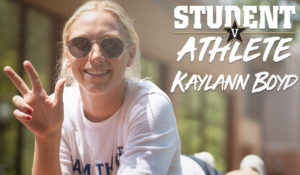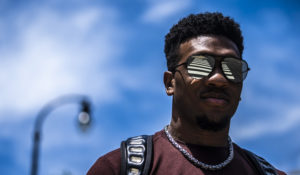Video by Zack Eagles
When Bree Horrocks decided she would pursue her final season of college basketball as a graduate transfer, the 6-foot-5-inch Purdue center had conversations with a number of interested coaches. Each time, Horrocks let coaches know their programs would be getting more than just a basketball student-athlete.
“I told every coach I talked to that I was openly gay, I was going to advocate for the community and speaking out for the LGBTQ-plus community was something I would do,” Horrocks said. “It had to be accepted, not tolerated.”
Horrocks’ approach to recruitment helped her quickly find a home with Vanderbilt women’s basketball and head coach Stephanie White. But it was her academic journey at Vanderbilt that has also sparked a potential career path in LGBTQ+advocacy for Horrocks.
In May, the Buford, Georgia, native will earn a graduate degree from Vanderbilt’s Peabody College in Child Studies. Her research focuses on the mental health surrounding LGBTQ+ adolescents and how treatment and healthcare can positively impact that community.
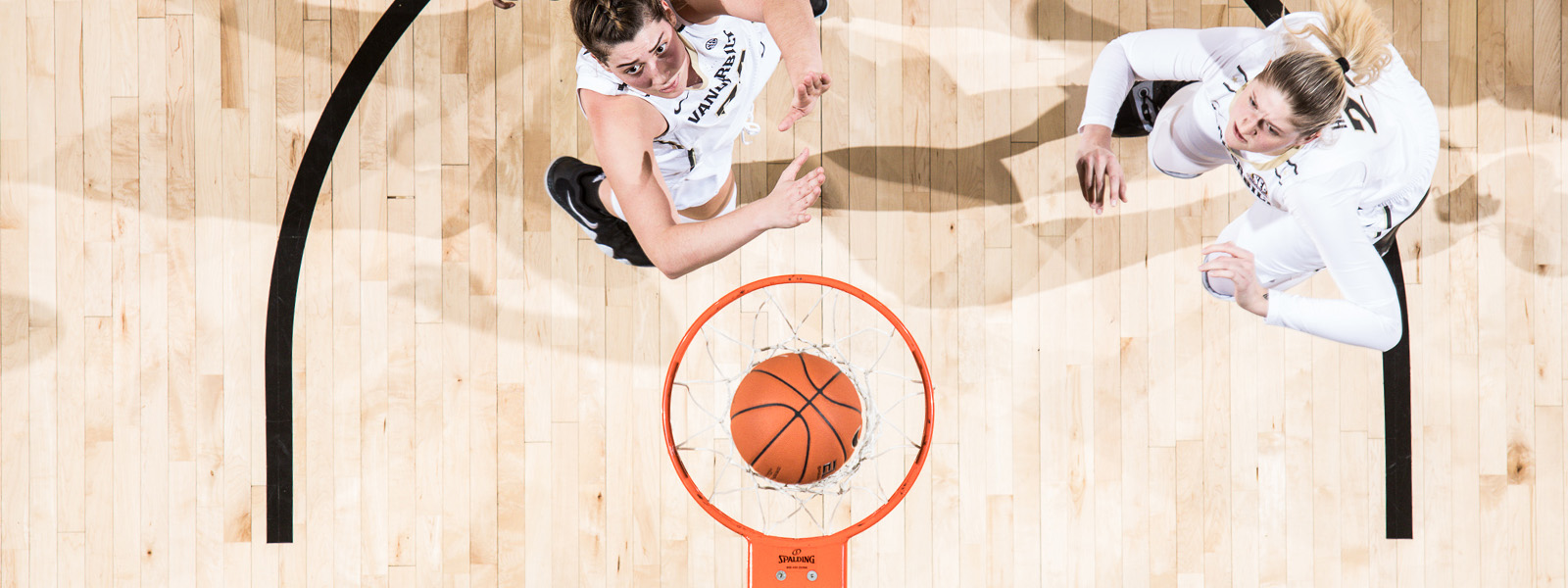
“I realized adolescence as a whole, for anyone — whether you’re heterosexual, cisgender, anything, –is considered a tumultuous period,” Horrocks said. “That’s where we see the greatest mental health decline. When you add in an LGBTQ identity to that, the mental health rates for things like suicide and depression and anxiety shoot way up.
“I wanted to do something to help with that. When I immersed myself in the literature and the academia, I fell in love with it. I decided there was more I could do there.”
Horrocks has made the most of her time at Vanderbilt. A key reserve for White’s Commodores, she has spent time off the court interning with the university’s Office of LGBTQI Life. Her graduate research also frequently takes her to a newly opened Nashville-area adult transgender clinic, a safe space for LGBTQ+ individuals to seek treatment and counseling. There, Horrocks has studied the effects of affirmative healthcare on LGBTQ+ persons.
“When you go through life wondering if coming out puts you at physical harm, that changes the way you walk through this world.”
For Horrocks, her passion for the subject is personal. She came out publicly as a freshman at Purdue in 2015, just seven days after the state of Indiana signed the Religious Freedom Restoration Act, which allowed businesses to refuse service to individuals on the basis of religious beliefs. Horrocks quickly realized she could use her platform as a student-athlete to advocate for her own community.
“There are still people who think that it doesn’t matter, your sexual orientation doesn’t matter, your gender identity doesn’t matter,” Horrocks said. “‘Just play basketball. You’re here to do school and play basketball.’ But people don’t realize that not just that identity, but other marginalized identities as an athlete, they do affect the way you play basketball and the way you walk through the world. When you go through life wondering if you coming out puts you at physical harm, that changes the way you walk through this world.”
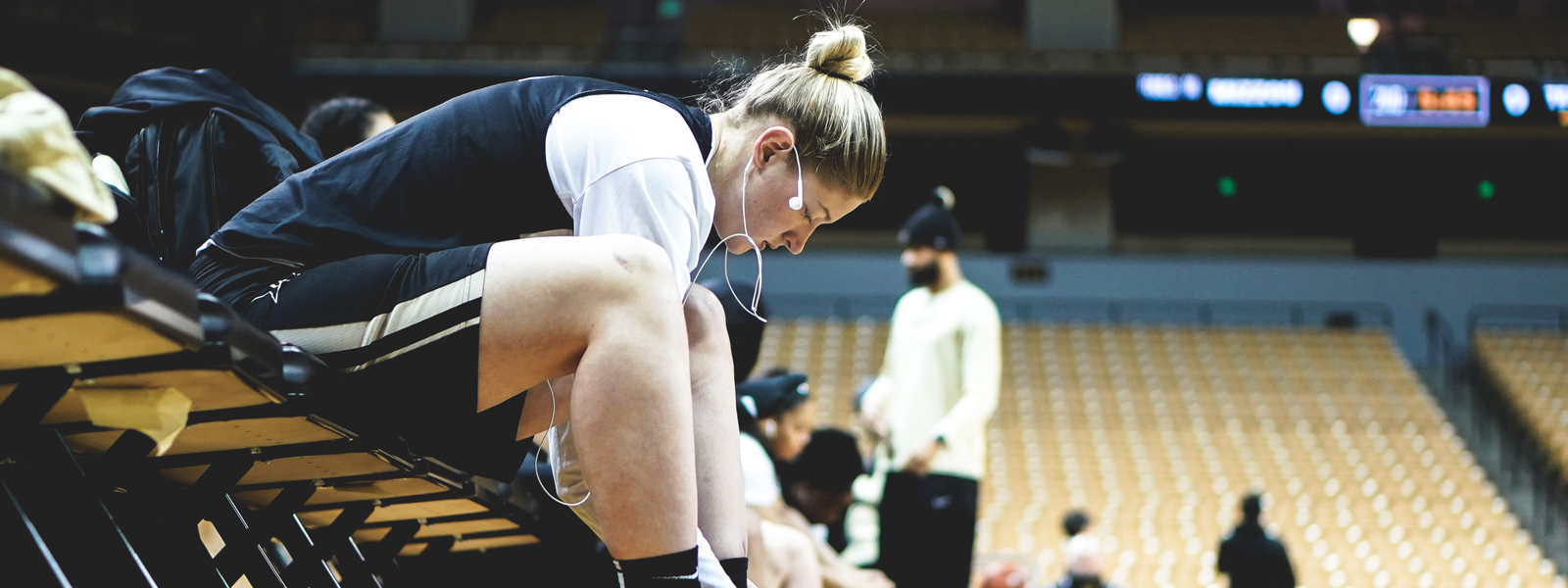
White said Horrocks sets an example for younger athletes who might struggle to navigate their own LGBTQ+ journeys. To White, Horrocks proves a college athlete can be – and should be – comfortable in his or her skin.
“One of the things I’m most proud of with Bree is she’s making a difference by living her truth everyday,” White said. “As we have come through social change that’s been met with resistance, there is no greater example than leading with truth. For Bree to come to a place where she is accepted, she is celebrated for who she is and to have an opportunity to impact the lives around her, that’s important. As we continue to, as human beings, make a difference in this world, having an opportunity to lead with authenticity is huge.
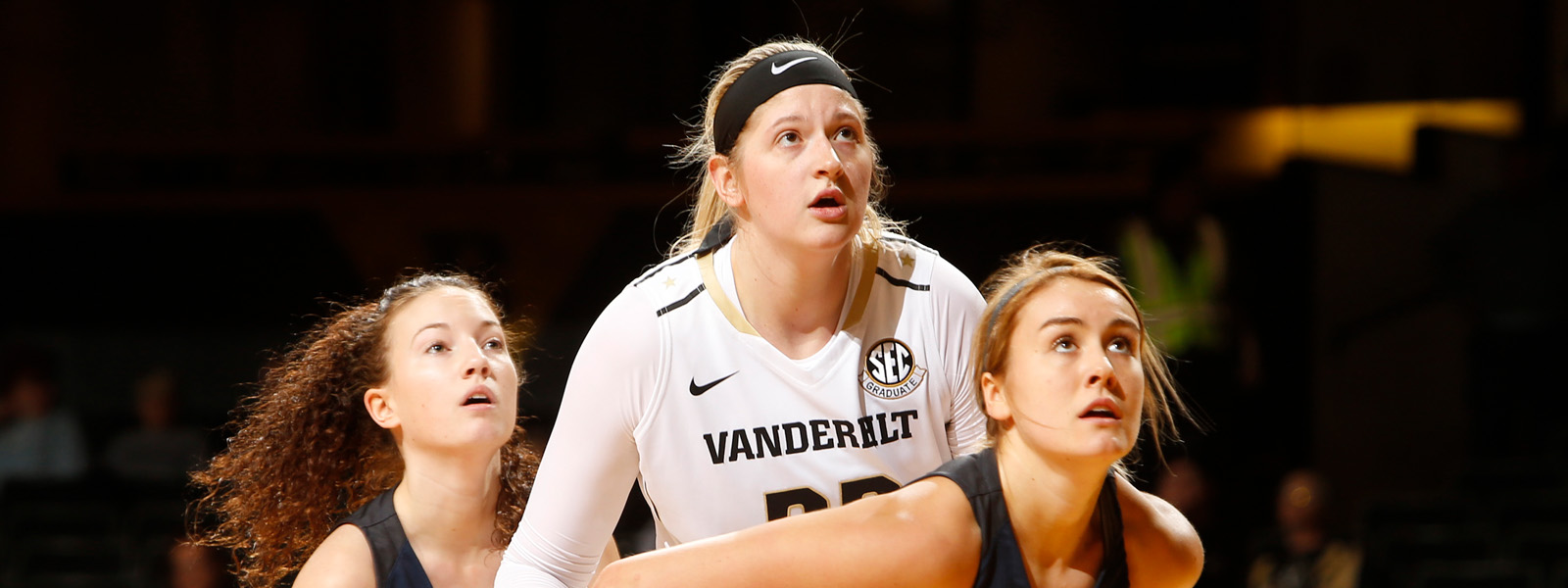
“I came to Vanderbilt because I knew it would be an amazing place to live my full authentic life.”
“Young kids can look up to her and say, ‘This is what I want from my life. I want to be open, I want to be free and I want to be loved for who I am.’”
In her post-Vanderbilt career, Horrocks plans to remain in Nashville for a year to continue her research. She then hopes to apply to Ph. D programs in clinical psychology for LGBTQ+ adolescents. One way or another, Horrocks intends to make a difference in the world, a career path that might not have come to fruition if not for her time at Vanderbilt.
“I came to Vanderbilt because I knew it would be an amazing place to live my full authentic life,” Horrocks said. “Socially, academically and athletically, I could live my most authentic life. My daily support just comes from accepting who I am.”

